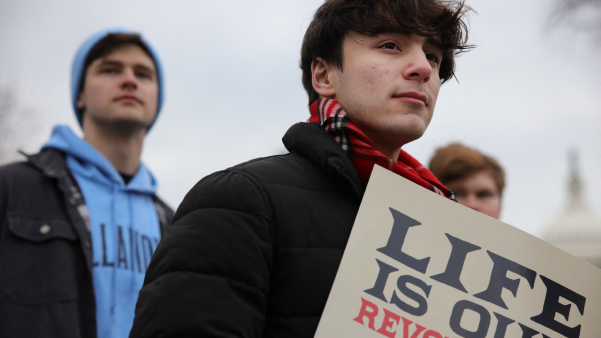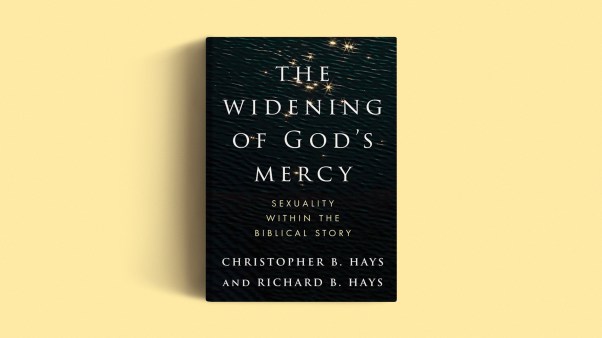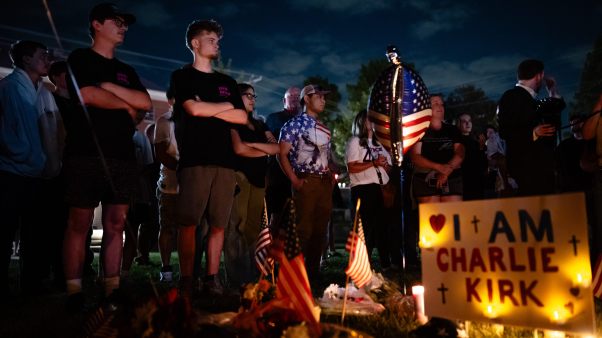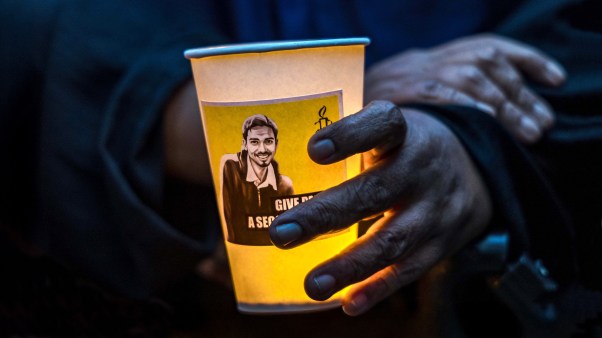The Motion Picture Association of America, the group of parents who assign ratings to movies, is facing criticism from political leaders for being too lenient, from filmmakers for being too inconsistent, and from parents for being too uninformative. The pressure has led the MPAA to now require the reasons for a film’s rating to appear on its promotional materials.
But the ChildCare Action Project might have more to offer Christian parents concerned about content. Its Web site offers an at-a-glance, thermometer-style gauge of a movie’s objectionable material in six categories, and leaves to parents the subjective decision about what their children should watch.
“The MPAA system seems to decide for the parent and grandparent at what ages children may be exposed to the various issues of sinful programming,” says Thomas A. Carder, president of the ChildCare Action Project. The PG-13, R, and NC-17 ratings denote specific age levels that movies are appropriate for, “thereby creating dissonance between righteous parents and their kids who want to be like everybody else who get to see every movie ever made.
The CAP model leaves that decision with the parent/grandparent and makes no ‘permissible’ age distinctions as does the MPAA. The CAP model simply gives parents and grandparents tools … to make an informed decision.”
Carder says he never imagined that he’d have such an interest in parenting. “I remember telling my wife, Barb, when we were dating, that I, being the wild and virile hunk I was, did not want anybody running around calling me ‘daddy.'” But God led him, like Jonah, where he least wanted to go. “I think God is still chuckling,” he says. “Since that espousing of a proclamation of independence and freedom, 23 kids have called me foster daddy and seven (one biological and six adopted) call me daddy.”
His experiences as a parent and as a crisis intervention volunteer (commonly known as a “street drug counselor”) have shown him where youth are most fragile. Carder says American culture can work to “corrupt or destroy three key elements of the personal character of youth: integrity, self-esteem, and coping skills. … The 24-7 experience He gave me … put me in an otherwise impossible position to intimately observe the behavior [of] so many so intimately for changes directly traceable to the influence of the entertainment industry.” He felt that parents needed better tools to stay aware of the harmful content in popular culture, so in 1995 he helped launch the ChildCare Action Project and helped develop the rating standards.
“We use 80 prescribed investigation standards to determine acceptability of a movie and its contents. The investigation standards are the teachings and expectations of Jesus,” he notes, which take into account instances of hatred and disrespect that the MPAA does not. These standards are used to calculate scores in six categories: wanton violence/crime, impudence/hate, sex/homosexuality, drugs/alcohol, offense to God, and murder/suicide. The model has been so successful that even professional scientists have taken note. Dr. Marcus Banks, a sociocultural anthropologist at the University of Oxford, said “I am a social scientist, not a film critic, and I am not a Christian, but what impressed me was that CAP had set itself a clear objective and a clear set of criteria to attain that objective.”
In contrast, the MPAA’s criteria often shifts. In Premiere magazine’s November issue, MPAA president Jack Valenti says, “I have tried to make sure that [we] keep up with the American ethic. We cannot be sterner than television. More than 125 million people a day watch TV. Only three to five million a day go to the movies. TV sets the tone, and TV, of course, has changed. So we have changed.” Carder says this prevents parents from knowing what the rating even mean anymore. “What I would do if I were to replace Jack Valenti is get rid of the PG-13 and return those programming ignominies to the R stratum from where they came. Then I would tighten up all acceptance standards (if any are used by the MPAA) and lock them, not letting the slipping of moral standards of their survey population dictate the MPAA acceptance criteria.”
That way, responsibility is back on the parents’ shoulders to be active in their kids’ entertainment decisions, and for using those choices to teach lessons. It’s a responsibility that Carder holds sacred, rarely giving his opinion of a film or telling parents how to feel about it. Even in his coverage of the recent Christian film Left Behind, which he found powerful, he reminds readers that he is not their kids’ babysitter. ” The CAP Analysis Model makes no scoring allowances for ‘messages,’ for ‘justification’ of aberrant behavior or imagery, or for camouflaging with ‘redeeming’ programming. Whether a movie is acceptable to you and your family is not my call to make. That is your call.”
Steve Lansingh is editor ofTheFilmForum.com, an Internet magazine devoted to Christian conversation about the movies.
Related Elsewhere
Read Christianity Today‘s other profiles of Christian movie reviewers on the Internet:
David Bruce of Hollywood Jesus
Doug Cummings of Movies & Ministry
Jeffrey Overstreet of GreenLake Reflections
Michael Elliott and Holly McClure of Crosswalk.com
J. Robert Parks of The Phantom Tollbooth
Josh Spencer and Brian Heflin of Stranger Things magazine
Sarah Barnett of Anglican Media Sydney








